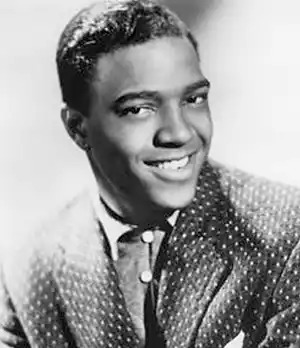#clyde mcphatter
Explore tagged Tumblr posts
Text
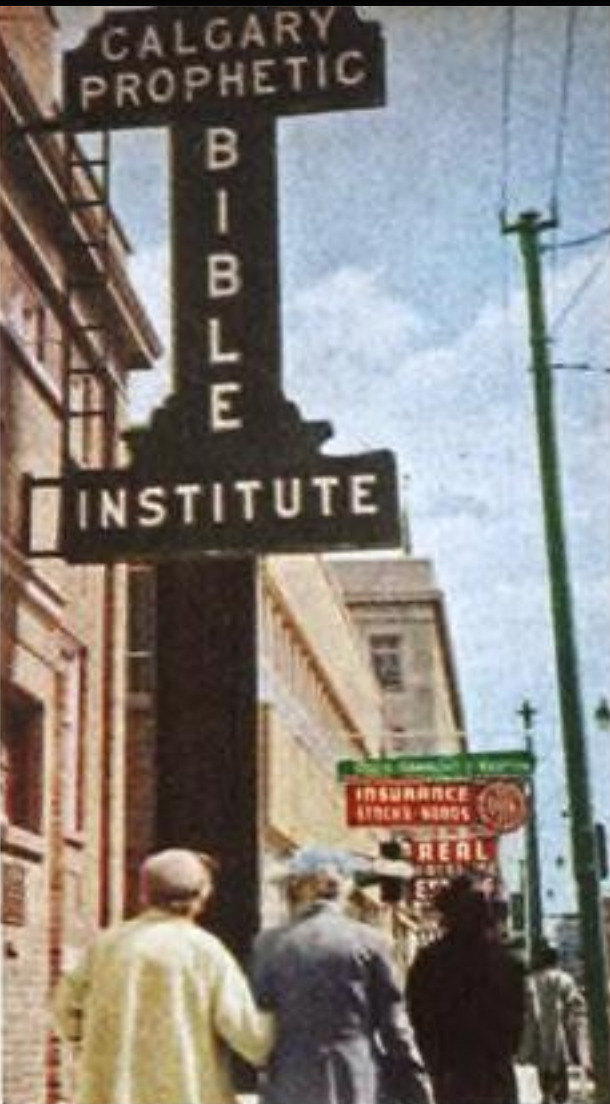
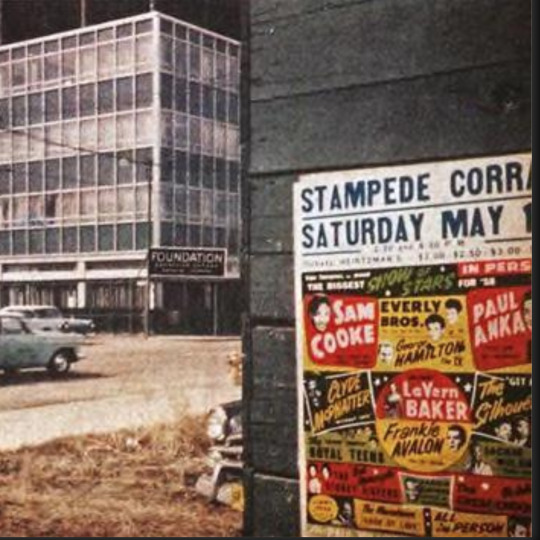
The Streets of Midcentury Calgary
#calgary#alberta#sam cooke#the everly brothers#paul anka#lavern baker#clyde mcphatter#sign geeks#vintage#midcentury
14 notes
·
View notes
Text
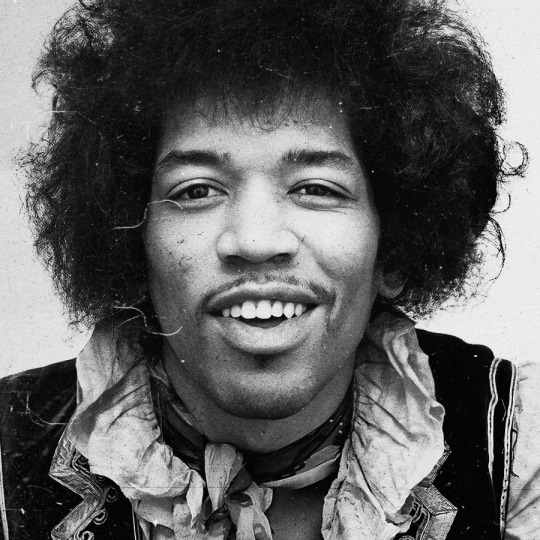
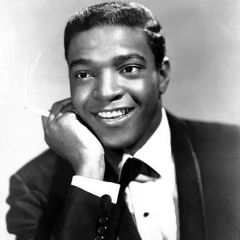
Jimi Hendrix (1942-1970) The Jimi Hendrix Experience - guitar and vocals Songs: "Voodoo Child," "Foxy Lady" Defeated Opponents: Elvis Costello Propaganda: none
Clyde McPhatter (1932-1972) The Drifters - vocals; solo Songs: "Long Lonely Nights," "Money Honey" Defeated Opponents: Jorge Ben Propaganda: none
11 notes
·
View notes
Text

Clyde McPhatter – Clyde, 1959.
Cover by Marvin Israel.
13 notes
·
View notes
Text
People say I'm a doo-wopper, and it's certainly true, but of the four singers who influenced me the most, only two are considered group singers.
The big four are Rudy West, Clyde McPhatter, Little Willie John, and Ray Charles.
-Marvin Gaye
1 note
·
View note
Text
Music & Film Reviews: Early Rockers Darlene Love, Dion, Clyde McPhatter, & Charlie Feathers
Music &; Film Reviews: Early Rockers Darlene Love, Dion, Clyde McPhatter, & Charlie Feathers @thewandererdion @ProperMusicGrp #darlenelove @byJeffBurger #clydemcphatter #charliefeathers
Early Rockers Darlene Love, Dion, Clyde McPhatter, & Charlie Feathers This month has witnessed the rerelease of music from four important voices from rock’s early days. Let’s start with Darlene Love, whose Live 1982—a vinyl album from 1985—just debuted on CD and standard-definition DVD. Love, one of Phil Spector’s greatest vocalists, was a one-woman hit factory in the 1960s but received only a…
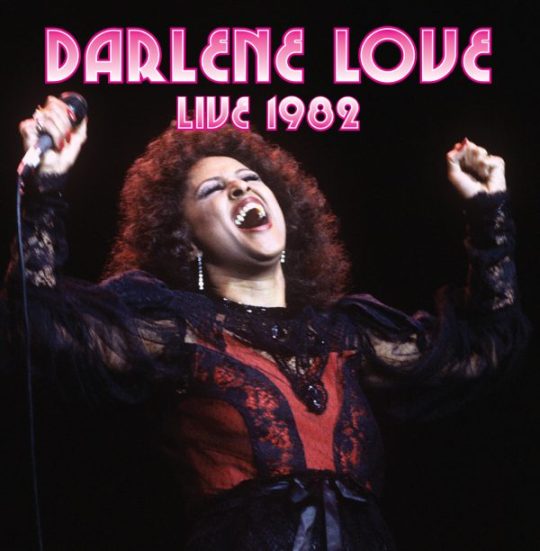
View On WordPress
0 notes
Text
And here's one from me!

White Christmas (feat. Clyde McPhatter & Bill Pinkney)
youtube
@nofatclips-home here's your Christmas card! 😃
#xmas#white xmas#white christmas#christmas#christmas music#clyde mcphatter#bill pinkney#the drifters
30 notes
·
View notes
Video
youtube
I’d like to know when she’s not with me, If she’s still true to me. I’d like to know when we’re kissing, Does she feel just what I feel, And how am I to know it’s really real?
Clyde McPhatter - A Lover’s Question
1 note
·
View note
Video
youtube
Dee Clark - Raindrops
Dee Clark (November 7, 1938 – December 7, 1990)
'Though largely unknown among contemporary audiences, Dee Clark was one of the most successful R&B singers of the late '50s and early '60s, his resonant, expressive tenor gracing classics like "Raindrops" and "(Hey) Little Girl." Delecta Clark was born in Blytheville, Arkansas on November 7, 1938; from the age of three, he grew up on Chicago's West Side, in 1952 joining with schoolmates Sammy McGrier and Ronnie Strong in the Hambone Kids. A fad that required performers to slap their thighs, chests, and other parts of the body in emulation of what's now known as a Bo Diddley beat, the Hambone Kids were popular long enough for the teenage trio to collaborate with Red Saunders & His Orchestra for a single, also titled "Hambone," issued on Okeh in 1952. The record was a minor hit, but in 1953 Clark moved on, assuming lead duties with the Chicago vocal group the Goldentones -- when local DJ Herb "The Kool Gent" Kent took over their management, he rechristened his charges the Kool Gents, landing them a recording deal with Chicago's Vee-Jay label. The group issued its debut single "This Is the Night" in early 1956, followed that summer by "I Just Can't Help Myself." (As the Delegates, they also released "The Convention," a novelty record inspired by that year's presidential election.)
After one final Vee-Jay session yielding 1957's "Mother's Son," the label's general manager Ewart Abner convinced Clark to go solo -- his debut "Gloria" was, in fact, a Kool Gents recording, although only Clark's name appeared on the label. He struggled to forge his own style, mimicking Clyde McPhatter on the follow-up "Seven Nights" and aping Little Richard on 1958's "Oh, Little Girl." Neither charted, but when Little Richard himself abruptly quit performing to enter Bible college, his booking agent hired Clark to fulfill his remaining live dates; he ultimately spent five months on the road with Richard's backing band the Upsetters, also enlisting the group for studio dates. Clark officially came into his own with late 1958's "Nobody But You" -- a luminous, uptempo love song ideally matched to his deeply affecting vocals, the single reached number 21 on the pop charts and number three on the R&B charts, creating the template for the remainder of his Vee-Jay output. Its 1959 follow-up "Just Keep It Up (And See What Happens)" was an even bigger pop hit, reaching the number 18 spot (although going only as high as number nine on the R&B rankings), and with the Bo Diddley-inspired rocker "(Hey) Little Girl" Clark solidified his popularity, reaching number 20 pop and number two R&B during a 15-week run on the charts.
In 1960 Clark notched three more consecutive pop chart entries: the Top 40 hit "How About That," "(Crazy Little Mama) At My Back Door," and "You're Looking Good." The streak continued in 1961 with "Your Friends," which reached number 34 on the national pop charts and proved an even bigger hit in his hometown Chicago market. Inspired by the inclement weather that plagued a road trip back from New York City, the follow-up "Raindrops" was both Clark's biggest hit and his creative apex -- a vividly cinematic virtuoso performance that reached number two on the Billboard pop chart, its sophisticated sound anticipated the R&B genre's coming evolution into soul. But Clark never again recaptured its success either in the studio or on the charts: none of his next three singles -- "Don't Walk Away from Me," 1962's "You Are Like the Wind," and "Dance On, Little Girl" -- even charted. "I'm Going Back to School" was a renaissance of sorts, cracking the R&B Top 20, but in 1963 Clark again stumbled, and after three successive singles ("I'm a Soldier Boy," "How Is He Treating You?" and "Walking My Dog") failing to chart, he left Vee-Jay, signing with Ewart Abner's new label Constellation for the dance record "Crossfire Time," which squeaked onto the Billboard Hot 100 at number 92 -- his final U.S. chart appearance.
Clark's Constellation tenure is a study in frustration -- between 1964 and 1966, he released eight singles for the label, none of which charted. Although 1975's Chelsea label release "Ride a Wild Horse" enjoyed chart success in the U.K., the single was Clark's last -- he continued touring relentlessly during the decade-plus to follow, the grind no doubt contributing greatly to the massive heart attack that ended his life on December 7, 1990 at the age of only 52.' ~ Jason Ankeny, All Music
13 notes
·
View notes
Text

decided to post this digital collage i did last week... ive been obsessed with this song, it's so beautiful! i went after the first recording by Clyde McPhatter and it is beautiful as well, i love his high tone! To know Elvis chose this song to sing in 69 makes me think a lot of things and the way he delivers it is devastating.
I went after the takes he did until the master, i think it was the 5th take that made it to the final cut, and then they added the choir and more instrument lines... i think it was such a pretty arrangement, the album version is my favorite. I've seen a lot of ppl saying that they like the raw version better. i understand, cuz there is elvis and his voice and it's kinda simple and it is enough and beautiful as always! but as an instrument and melody lover, i always surrender to beautiful arrangements and backing vocals, i think it adds a lot to elvis' performances cuz they make everything feel magnificent, like it's heaven jfkkdf
anyways. when he sings "i have conquered the world, all but one thing did i have...." it's so beautiful, his signature Cry brings me to my knees. sometimes i dont understand how he is such a really really good singer, technically speaking! cuz his tone is its own thing, and his technique is another thing entirely, both amazing, but like, he REALLY knew how to sing... i wish he had talked about it, if he did, at least once, i dont know about it. need to geek on it but well, limited historical sources 😭
ok! feel comfortable to comment or reply i love talking about elvis and im lonely
here they are:
#elvis#elvis presley#without love elvis#mine#digital collage#im so obsessed that i keep playing this song in my head and i still get goosebumps just by remembering the way it goes#voice of an angel what a human... love you so much sweet elvis#Spotify#how sad that i have an ear infection n cant listen to anything on my earphones... like. my earphones are so good guys#wish yall could experience it#jfkskfk
11 notes
·
View notes
Text


"Born 11 September 1935, New York State Died 8 December 1996, Maryland
Ben Hewitt made four fine records for Mercury Records in the late fifties, then disappeared from view until he was tracked down, in 1983, by Colin Escott and Hank Davis, who were in the process of compiling a Bear Family LP of Ben's recordings. He is sometimes described as a Canadian artist, but though he did live close to the Canadian border for much of his life, he was in fact a US citizen.
Hewitt was born in 1935 in a one-room, dirt-floor log cabin on the Tuscarora Indian Reservation in New York State. He wanted a guitar from the time he was nine or ten and kept bugging his father who finally broke down when Ben was about 12 and bought him a ukelele. About a year later, he got his first guitar, a $12.50 Stella. Influenced by Elvis and Sun Records, Ben started performing in bars. For over 13 years he played at DeFazio's in Niagara Falls, NY. It was there that Hewitt was approached by one Julian Langford. Hewitt told Escott and Davis: "He looked exactly like Colonel Tom Parker. He was up from Florida working in construction. He asked us what we'd charge to do some demos for him. He thought of himself as a songwriter, but he had the same tune to everything. The lyrics were nothing to write home about either. He'd come to us week after week and sing us the latest song he'd written. For the hell of it, we said, ' We'll do it on one condition. You supply the booze. Plus you gotta pay 20 bucks apiece and rent the hall'. "
It was this Julian Langford who secured Hewitt a recording contract with Mercury in 1958. The sessions were held in New York City and produced by Clyde Otis. Four singles were released, 1959-60. Clyde Otis didn't want Langford's material (except for "Whirlwind Blues"), most of the Mercury sides are Ben's own compositions. Otis himself also contributed a song, co-written with Brook Benton, "I Ain't Givin' Up Nothin' (If I Can't Have Something From You)". Hewitt's version of this song is the original one ; there were later versions by Clyde McPhatter and Jimmy "Frenchy" Dee, with Mickey Gilley on piano.
Ben's records did not sell particularly well, but enough to secure him plenty of bookings through the Shaw Agency, where he was the only white artist. Ben soon got tired of touring and after a nasty incident with Julian Langford, which hurt his (Ben's) reputation at Mercury, he lost interest in making records. He did not record again until 1975, when he cut a country single ("Border City Call Girl") for Broadland Records in Toronto, which was leased to Shelby Singleton's Plantation label."
Ben Hewitt - My Search https://youtu.be/dJp9WLfGDMc
youtube
7 notes
·
View notes
Text
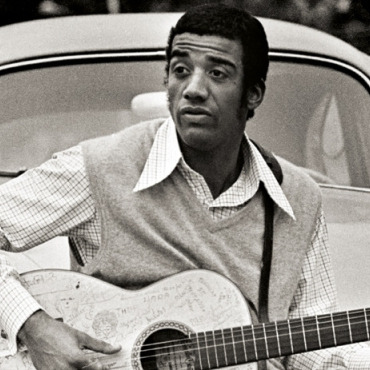
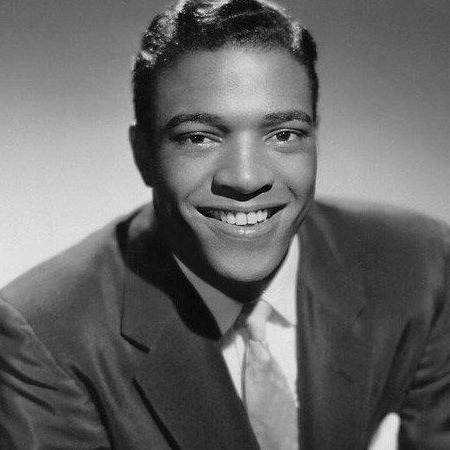
Jorge Ben (1939-) solo Songs: "Taj Mahal," "Oba, Lá Vem Ela" Propaganda: none
Clyde McPhatter (1932-1972) The Drifters - vocals; solo Songs: "Long Lonely Nights," "Money Honey" Propaganda: none
6 notes
·
View notes
Text

During Is Sadly 😔Short Life time Elvis Presley Met Many Celebrity’s As Here He Is Meeting One Of The Drifters Clyde Mcphatter Here In This Rare B/ W Candid Photo Of The Aftershow Party Celebrating Another Succesful Vegas Opening At The International Hotel Here In 1970 And Also The AfterShow Party 🎉 For Is MGM Movie He Made That Gave An Insight Into The Real Elvis Presley Elvis That’s The Way It Is in 1970.
21 notes
·
View notes
Text
Not sure what is meant by the Original Drifters - whether it was the remains of the Clyde McPhatter-era group with replacement singers as needed, or the Five Crowns/Ben E. King-led quintet with his replacement. To make things even more confusing, Bobby Hendricks was a pre-Five Crowns Drifter. If you don’t know what I’m babbling on about, simply enjoy the poster.

3 notes
·
View notes
Text

Bobby Day (July 1, 1930 -July 27, 1990) Rock and Roll and R&B singer/songwriter/producer and multi-instrumental artist was known for his only major hit “Rockin’ Robin”. In 1958, the single, written by Leon Rene under the pseudonym Jimmie Thomas, reached #1 on the R&B chart, #2 on the Billboard Hot 100 chart, and sold over one million copies.
He was born in Fort Worth. His mother was Julie Jennings. He moved to Los Angeles at age 15 and began performing with the Hollywood Flames at Otis’s Barrelhouse Club in Watts.
He made his first recording, “Young Girl” with the Hollywood Flames. The song was released in 1950. He had minor music success as the lead singer of the Hollywood Flames, performing under the stage name of Bobby Day. Their hit song “Buzz, Buzz, Buzz” which he wrote, reached #11 on the R&B charts. He formed his group, the Satellites, which backed him on “Little Bitty Pretty One”. He and Earl Nelson performed as the duo Bob and Earl. He and Earl recorded “Gee Whiz,” and “Harlem Shuffle” under his real name, Robert Bryd.
He wrote and recorded “Little Bitty Pretty One” but it was made popular by Thurston Harris whose version hit #6 on the Billboard Hot 100 chart. The single was recorded by Frankie Lymon, followed by Clyde McPhatter. The Jackson Five recorded the song, which reached #13 on the Billboard Hot 100 chart and #2 on the Billboard R&B chart. He wrote and recorded “Over and Over” which climbed to #40 on the pop chart. He wrote and recorded “The Bluebird, The Buzzard, and the Oriole,” and “That’s All I Want”. He recorded on several record labels including Rendezvous, RCA, Sure-Shot, and Jama Records.
He appeared on several variety shows in the 1950s, 1960s, and 1970s including American Bandstand and The Midnight Special.
He was survived by his wife Jackie and their four children. #africanhistory365 #africanexcellence
2 notes
·
View notes
